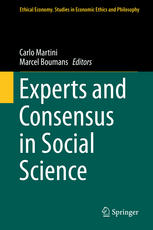

Most ebook files are in PDF format, so you can easily read them using various software such as Foxit Reader or directly on the Google Chrome browser.
Some ebook files are released by publishers in other formats such as .awz, .mobi, .epub, .fb2, etc. You may need to install specific software to read these formats on mobile/PC, such as Calibre.
Please read the tutorial at this link: https://ebookbell.com/faq
We offer FREE conversion to the popular formats you request; however, this may take some time. Therefore, right after payment, please email us, and we will try to provide the service as quickly as possible.
For some exceptional file formats or broken links (if any), please refrain from opening any disputes. Instead, email us first, and we will try to assist within a maximum of 6 hours.
EbookBell Team

0.0
0 reviewsThis book brings together the research of philosophers, sociologists, and social scientists. It examines those areas of scientific practice where reliance on the subjective judgment of experts and practitioners is the main source of useful knowledge to address and possibly, bring solutions to social problems. A common phenomenon in applications of science is that objective evidence does not point to a single answer or solution, to a problem. Reliance on subjective judgment, then, becomes necessary, despite the known fact that hunches, even those of putative experts, often provide information that is not very accurate, and that experts are prone to fallacies and biases. The book looks at how experts reach consensus in the social sciences, and which experts are relevant to which problems. It aims to answer many questions, the main one being: Can we start building a normative theory of expertise on the basis of the evidence that social scientists, sociologists and philosophers have uncovered?